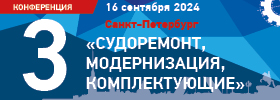Tanker market situation
The year of 2015 was quite optimistic for a global tanker market while the second quarter of 2016 saw a decline of freight rates amid the difficult situation in the global oil market. The winners are the companies able to diversify their business and sign long-term contracts. Yet, there are conditions for market recovery in the mid-term period.
To stay afloat
According to the analytical data, VLCC segment saw a fall to 35 WS points. The lowest monthly Worldscale average dropped to WS 43 points from 54 WS points in 2015. As of today, the annual Worldscale average in 2016 is 62 WS against 88 WS in 2015.
The situation in the segment of product carriers is no better. The annual Worldscale average in the LR segment is 109 WS against 164 WS in 2015, in the MR segment – 132 WS against 183 WS last year.
In general, freight rates for crude carriers were decreasing in the second quarter of 2016 due to a seasonal factor and mostly amid the decrease of oil supply in the key markets.
Besides, oil production reduced considerably in Nigeria and Latin America. In early 2016, daily production in Nigeria fell to 1.7 mln barrels, a 20-year low. In QI’2016, oil production in Venezuela fell by 11.9% against QI’2014 to 2.53 mln barrels per day. Oil production also decreased in Columbia and Mexico. These factors resulted in reduction of oil transportation in key regions of Aframax and Suezmax tankers.
Freight rates are also under the negative impact of global tanker fleet increase. In HI’2016 its deadweight climbed by 2.7%, or 14.2 mln t. In 2016 the market is to accept 17 VLCCs.
The profit of shipping companies is decreasing amid this situation. Teekay, one of the largest tanker companies ended the first half of 2016 with a net loss of $125.5 against the net profit if $259 mln a year ago, with a NPM of -10%.
However, Russian tanker company Sovcomflot was able to end the six-month period with a profit of $165.9 mln and a NPM of 24%.
It is clear that in the challenging market situation Sovcomflot feels not worse if not better than the leading global players. Commenting on the Group’s performance Sergey Frank, President and CEO of PAO Sovcomflot, said: “From January to July, there was a notable downswing in the global tanker market, with spot rates in certain market segments dropping by one third year-on-year, which has affected the financial performance of the entire industry.” According to him, stability of the company should be attributed to diversification of Sovcomflot’s business. “Analysts foresaw this downturn, so, as part of its Development Strategy, Sovcomflot has focused its efforts on diversifying its business by beefing up its portfolio of long-term industrial projects with a fixed high rate of return. Participation in projects such as Sakhalin-1, Sakhalin-2, Varandey, Prirazlomnoye, Novy Port, and Yamal LNG will guarantee a reliable source of constant income for Sovcomflot even in times of market uncertainty and ensure the stable employment of a significant proportion of our fleet. As of 31 July 2016, future contracted revenue stood at USD 8.2 billion”, he said.
Meanwhile, there are fundamental prerequisites for improvement of the tanker market situation in the second half of 2016. First of all, there is a high demand for oil worldwide amid the low oil prices and for seasonal reasons. Besides, oil production recovery is expected in the mentioned regions. International Energy Agency forecasts the recovery of the demand to 1.4 mln barrels per day in 2016 (up from 1.2 mln barrels per day in spring 2016 года). Besides, the year of 2016 has seen few contracts for construction of new tankers as well as few decommissioned tankers. Nevertheless, the year of 2017 is expected to see the growth of global tanker deadweight by 5.1%. After 2017 this growth will slow down with few vessels delivered and decommissioning of the old tankers.
Whatever the future situation in the tanker market, it is obvious that diversification of business and focus on long-term project in certain niches will stay important.
Vitaly Chernov






